Intriguing goal to work much less.
- Transfer
Mastering active recreation is harder than it seems, but there are good reasons for trying to do this.

When I moved from Washington, DC to Rome, one of the sights struck me more than any ancient columns or basilicas: lounging people.
I often noticed old women leaning against the window sills, watching people walk downstairs, families on evening walks, constantly stopping to greet friends. Even office life was different. No buter intercepted at work. At lunchtime, restaurants are filled with workers who absorb normal meals.
Of course, since then, when the 17th century aristocrats traveling around the gran tour began to take notes, the visitors turned the Italian “idleness” into a stereotype. But this is not an exhaustive description. The same friends, who slowly drove home on their scooters to quietly dine there, often returned to work and worked until 20:00.

By law, in each EU country, a person has four weeks of paid vacation, and in Italy there are 10 additional holidays
. But I was always amazed by the obvious belief in the balance between hard work and il dolce far niente, the sweetness of doing nothing. After all, doing nothing is sort of the opposite of productivity. And productivity — creative, intellectual, industrial — is the best use of our time.
But the more we fill our days with “doing,” the more people discover that non-stop activity is not an apotheosis, but an enemy of productivity.
Researchers find that the point is not only that the results of work done 14 hours a day are worse in terms of the quality of the results we achieve with a fresh mind. Such a scheme of work undermines our creative and cognitive abilities. Over time, it may even result in a physical illness and, ironically, a sense of purposelessness in life.
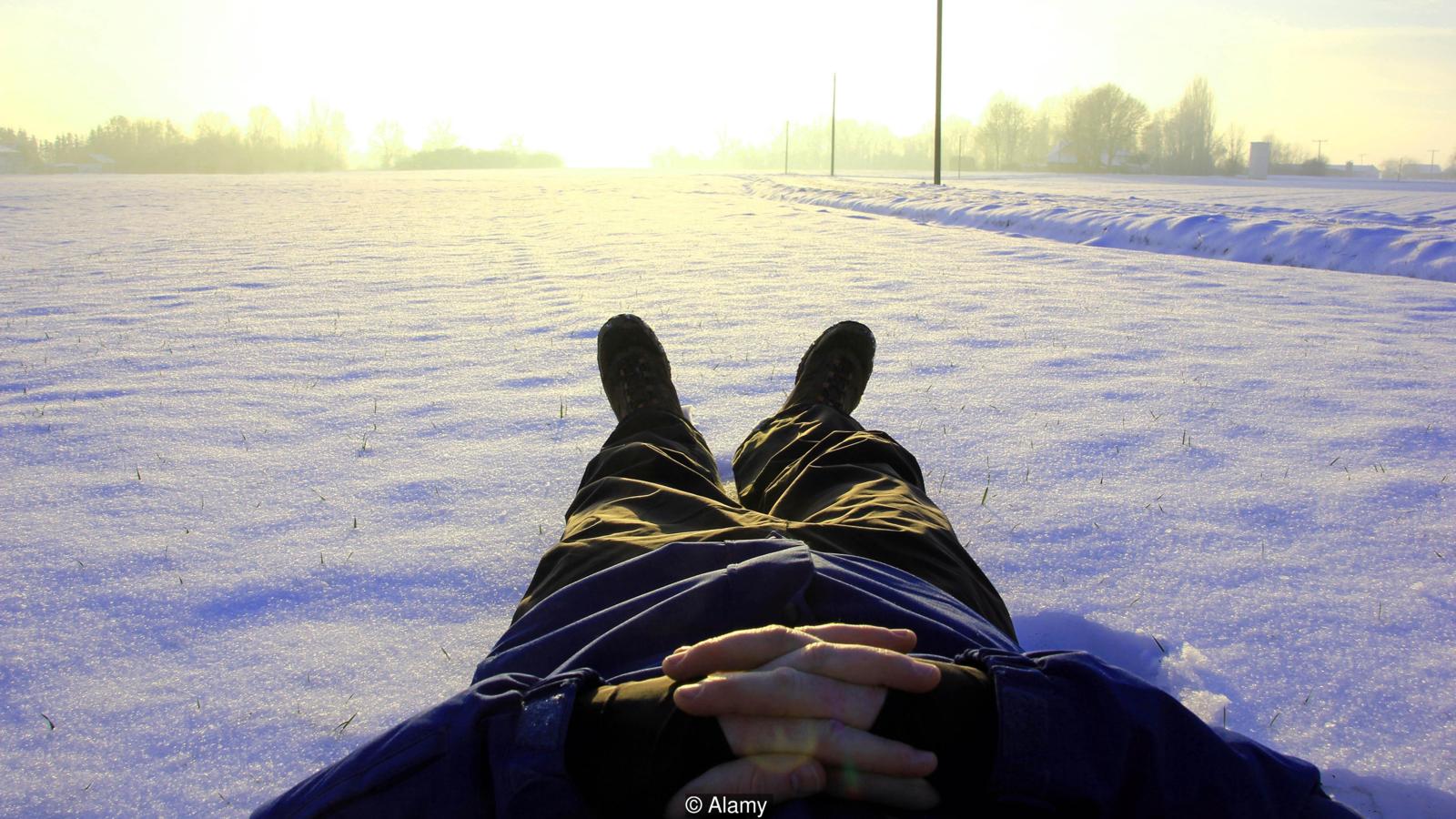
Sweden, in a six-hour experiment, found that workers had improved health and productivity
Imagine mental work in the form of push-ups, says Josh Davis, author of Two Amazing Hours"[Two Awesome Hours]. Suppose you want to wring out 10,000 times. The most effective way to do this would be to do them all in a row without a break. But instinctively we know that this is impossible. Instead, if we make them little by little, alternating other activities, stretching them for several weeks, the goal of wringing out 10,000 will become more feasible.
"In this sense, the brain is very similar to a muscle," writes Davis. "If you organize for him permanent and wrong working conditions, there is not much to achieve. Organize the right conditions and you will not Nothing is impossible. "
Do or die
Many of us consider our brain not a muscle, but a computer: a machine capable of permanent work. This is not just wrong: some experts believe that by forcing yourself to work for hours without a break, you can hurt yourself.
“The idea that one can infinitely stretch the state of concentration and productive time for arbitrary time periods is completely wrong. It is doomed to fail, ”says researcher Andrew Smart, author of the book Autopilot [Andrew Smart, Autopilot]. "If you constantly drive yourself into this state of cognitive duty, where your physiology tells you:" I need a break, "and you keep pushing yourself, you will get a stress response that has grown into a chronic one - and over time it will become extremely dangerous."
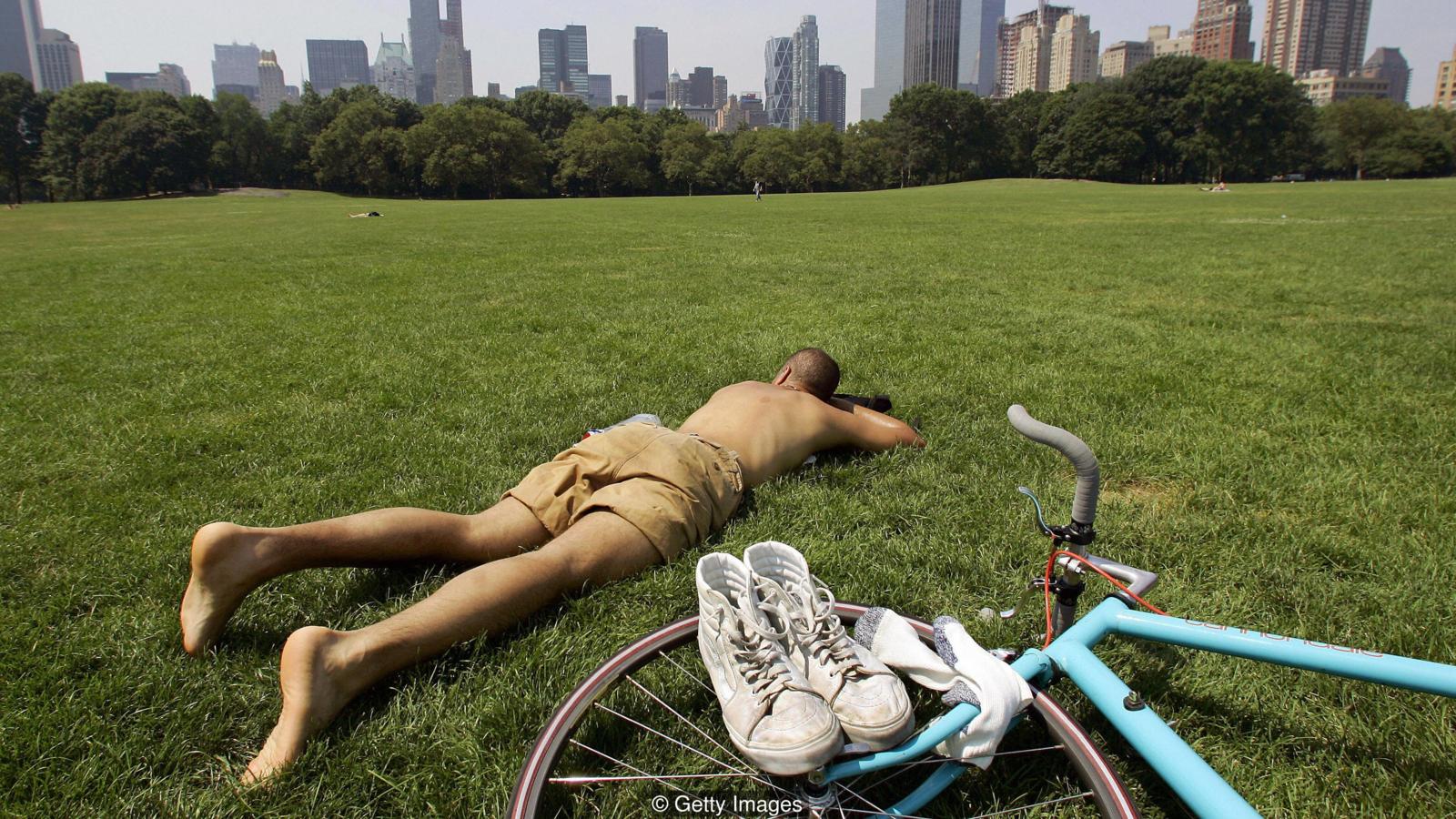
In one meta-analysisit was found that prolonged daily working time increases the risk of coronary insufficiency by 40% - comparable to smoking (50%). In another study , people who work long hours every day have a serious risk of stroke, and people who work more than 11 hours a day are 2.5 times more likely to develop clinical depression than those who work 7-8 hours. .
In Japan, this resulted in a trend called “ caros, ” or death from recycling .
If you are thinking, does this mean that it’s time for you to think about using a long-lasting vacation, the answer may be positive. One of the studies of businessmen in Helsinki found that for a period of 26 years, those directors and entrepreneurs who took less days off in middle age, died earlier and experienced more health problems in old age.
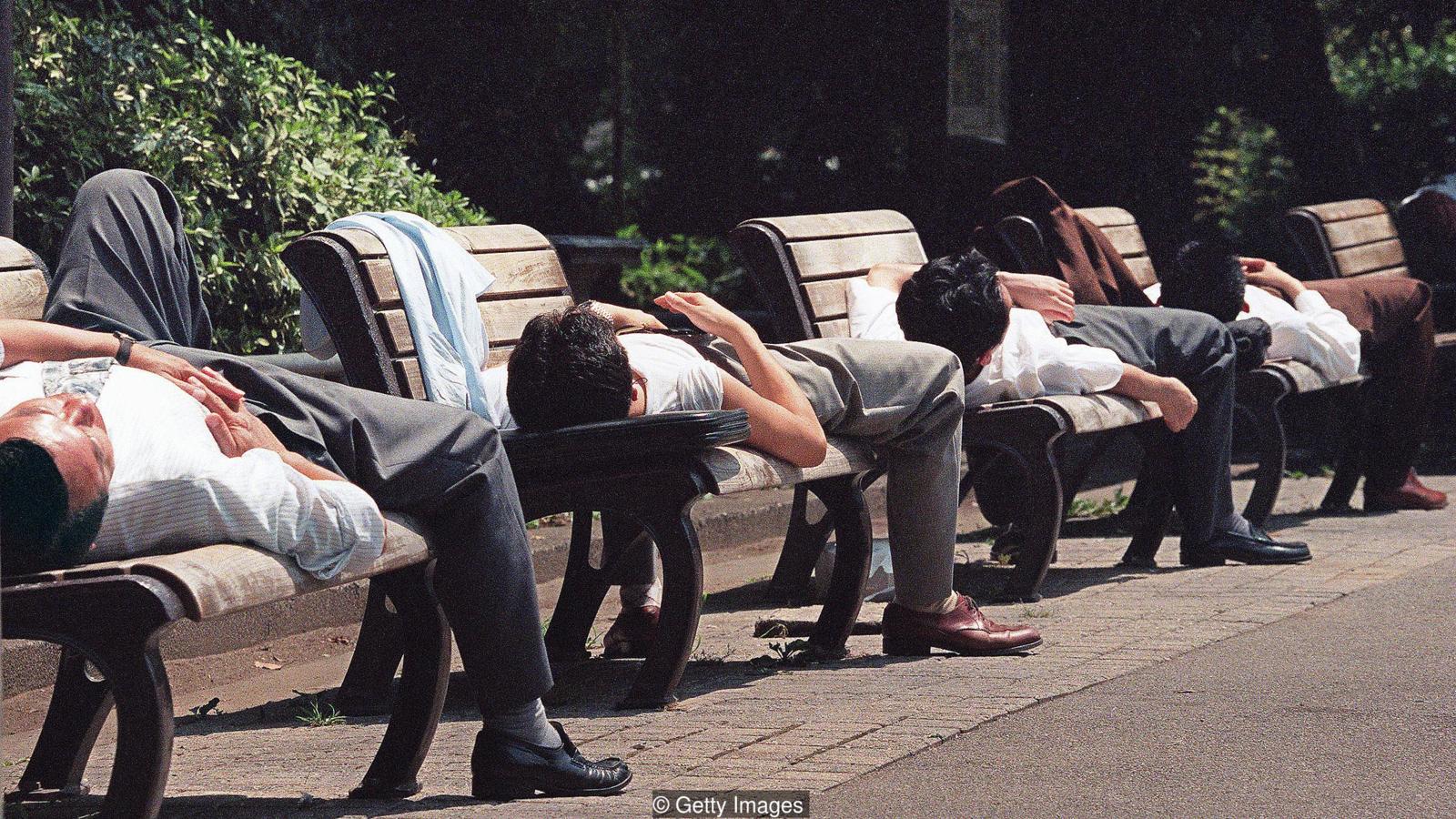
Death from recycling is so common in Japan that the family of the deceased receives compensation from the government around $ 20,000 / year. The
weekend can literally pay for itself. In one studywho studied 5,000 full-time Americans, it was found that people who took less than 10 paid weekends a year received 1 chance out of 3 to get an increase in pay or raise. People who took more than 10 days off had 2 chances out of 3.
Productivity Source
It is easy to imagine that efficiency and productivity are modern obsessions. But philosopher Bertrand Russell would not agree with that.
“They will say that although a short rest is pleasant, people would not have found something to fill the days if only four hours out of twenty-four worked. Since this is true in the modern world, this is a reproach of our civilization. This was not so in any earlier period. Formerly, there was an opportunity for carelessness and play, to some extent suppressed by the cult of efficiency. Today's man thinks that everything must be done for the sake of something else, and never for nothing, ” wrote Russell in 1932.
However, some of the most creative and productive people understood the importance of doing less. They had not only strict work ethic, but also a commitment to rest and play.
“Work on one thing until you finish,” wrote artist and writer Henry Miller in his “ 11 Commandments of the Writer .” “Stop at the appointed time! Stay human! Meet people, visit different places, drink if you want. "
Even the founding father of the United States, Benjamin Franklin, a model of hard work, spent a great deal of time doing nothing. Every day he had a two-hour break for lunch, a free evening and a good night’s sleep. Instead of continuously working on his career, he spent “a lot of time” after the hobby and socialization. “And many of the interests that distracted him from his main activity led to a huge number of amazing things that made him known — for example, the invention of Franklin’s stove or lightning rod,” writes Davis [ lightning rods were known before Franklin - approx. trans. ].
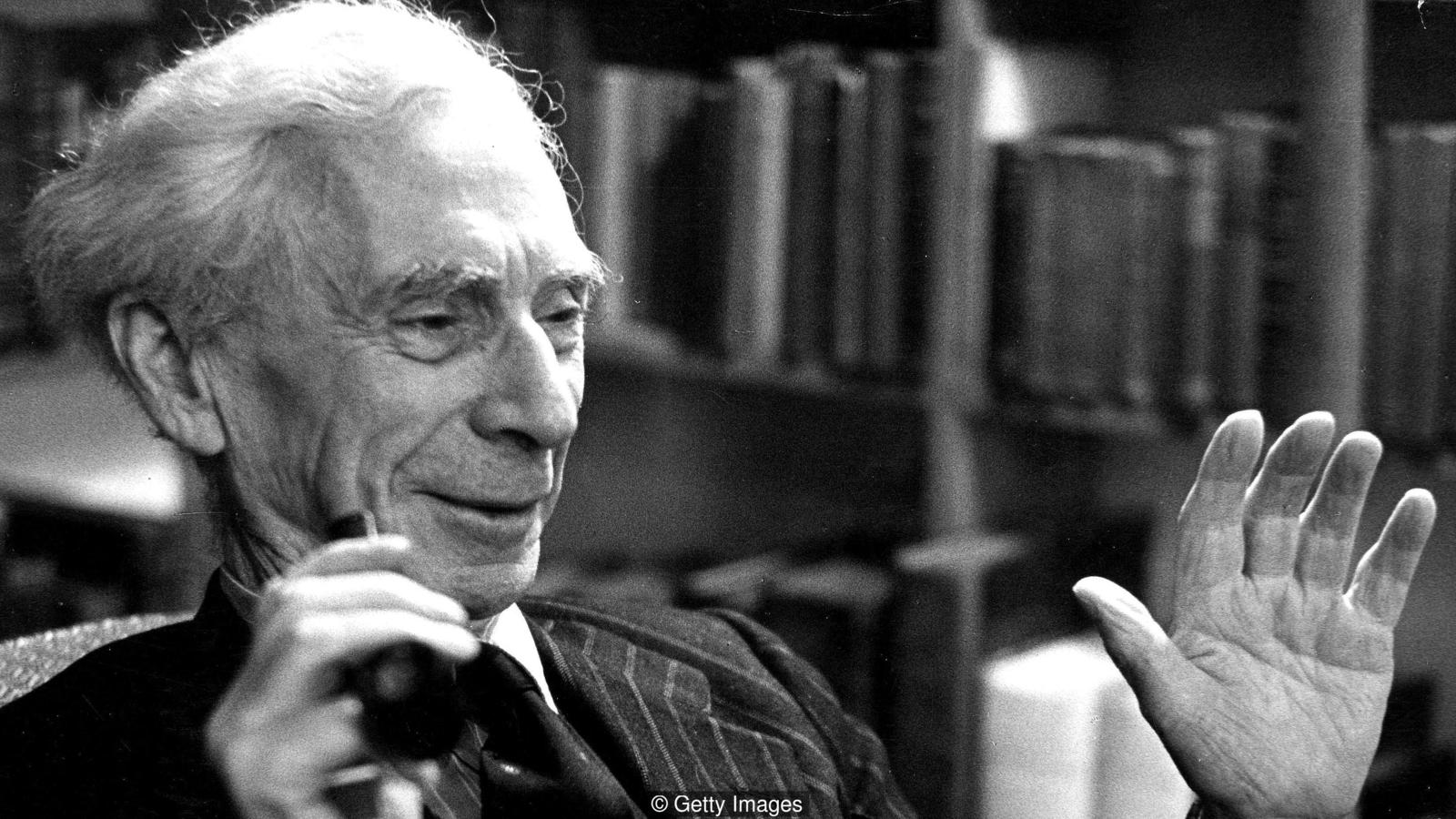
Philosopher Bertrand Russell wrote: “Americans need rest, but they don’t know about it.”
Even at the global levelThere is no correlation between the productivity of a country and the average number of working hours. During a work week of 38.6 hours , the average US worker works 4.6 hours more than a resident of Norway. But the Norwegian workers add to GDP at $ 78.7 per hour - and in the US only at $ 69.6.
And what about Italy, the birthplace of il dolce far niente? With an average work week of 35.5 hours, it increases GDP by almost 40% more than Turkey, where people work on average 47.9 hours a week. She even wins in Britain, where people work for 36.5 hours.
So all these coffee breaks should be good.
Brain waves
Eight-hour working days basically came about because companies found that shortening the working day leads to the opposite of the expected effect: it increases productivity.
During the industrial revolution were considered normal working days lasting from 10 to 16 hours. Ford became the first company to conduct an experiment with an eight-hour working day, and found that its employees had become more productive, both for one hour of work and in general [ Again, no; in fact, the first in 1888, the eight-hour working day was established by the owner of the Zeiss plant Ernst Karl Abbe. After the Socialist Revolution in 1917, Russia adopted a Decree of the Council of People's Commissars on an eight-hour working day. In the United States, such a principle has taken root under the pressure of trade union workers organized under the impression of what is happening in Russia. For more on this, see, for example: Upton Sinclair, “ Oil! ” / Approx. trans. ].
If an eight-hour working day is better than a 10-hour, is it possible that even shorter working hours will be even better? Maybe. The study found that for people over 40, a 25-hour work week may be optimal for a cognitive system. In a recent Swedish experiment with six-hour working days, it was found that workers had improved health and productivity.
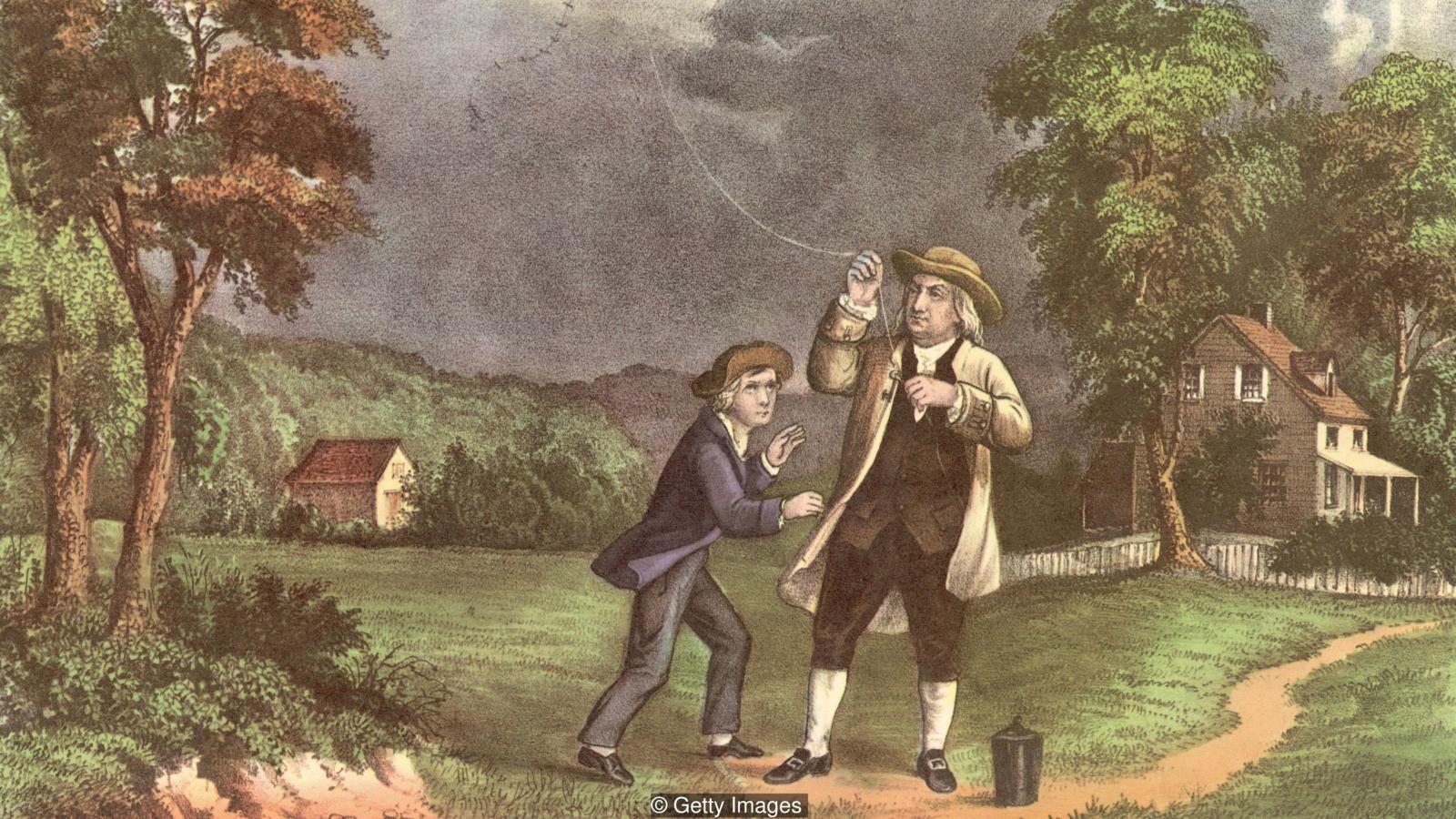
Inventor and scientist Benjamin Franklin conducted experiments, discovering unknown facts about the nature of lightning and electricity.
This is confirmed by the way people behave during the working day. In one survey of 2,000 full-time office workers, it was found that people only productively worked about 2 hours and 53 minutes during an 8-hour work day. The rest of the time is devoted to checking social networks, reading news, non-working conversations with colleagues, food — even searching for a new job.
Trying to work on the edge of our capabilities, we are able to concentrate for an even shorter time. Psychology researcher K. Anders Eriksson of the University of Stockholm found that when performing “intentional learning” [deliberate practice - he coined the term / approx. trans. ], in order to train a particular skill, we need to take more breaks than it seems. Most people can train for an hour without rest. Many professionals, like the best musicians and athletes, never devote more than five hours a day to their craft.
What do they have in common? “An increase in the tendency to a short, restoring sleep,” writes Ericsson, is one of the ways to rest the body and brain.
In other studies, it was found that a short rest while completing the tasks helped the participants to maintain concentration and continue activities at a high level. The absence of interruptions worsened their results. \

Virginia Wolfe wrote: “She didn’t want to move or speak. She wanted to rest, lie down, fall asleep. She felt extremely tired. ”
Leisure
But, as some researchers point out, “rest” is not always the best description of what we do when it seems to us that we are not doing anything.
As we already wrote, the part of the brain that is activated when you are “not doing anything”, known as the network of the passive mode of the brain (SPR), plays a key role in memory consolidation and future planning . Also, this area of the brain is activated when a person watches other people , thinks about himself , gives a moral assessment, or processes the emotions of other people .
That is, if this network is disabled, we may experience problems with memory, anticipation of the future, social interaction, self-understanding, ethical actions or empathy towards others - with everything that helps us to function not only in the workplace, but also in general .
“It helps you recognize the deep importance of situations and find meaning in events. When you don’t find such a sense, you simply react and act momentarily, causing you to undergo various cognitive and emotional behaviors and a view that doesn’t contribute to adaptation, ”says Mary Helen Immordino-Yang, neurobiologist and researcher at the Institute of the Brain and Creativity of the University of Southern California.
We also could not give out new ideas or invent new connections. AB, the source of creativity, begins to work when you draw a connection between seemingly unrelated things or invent original ideas . This is where your insight lies - that is, if the last time a good idea occurred to you when you were walking or bathing, like Archimedes, then you need your biology for that.
And, perhaps most importantly, without devoting time to self-contemplation, we lose a key element in achieving happiness.
“Most of the time, we are doing something without giving it meaning,” says Immordino-Jan. - When you do not know how to build your actions into a more general process of achieving a goal, over time they seem meaningless and empty to you, unrelated to your sense of self. And we know that the long-term lack of a goal leads to the fact that a person does not achieve optimal physiological and psychological health. ”

Even knitting can help your brain recover from regular work.
Monkey brain
But, like everyone who has tried meditation, they know that doing nothing is surprisingly difficult. How many people after 30 seconds of inactivity reflexively pull over the phone?
It becomes so unpleasant that we are even ready to hurt ourselves. In 11 different studies, it was found that the participants agreed to do anything - even to beat themselves with current - only to do at least something. And they were asked to be idle for not so long - from six to fifteen minutes.
The good news is that you don’t need to be completely idle to get the benefits of the holiday. Rest is important - but active thinking, chewing on a problem or thinking about an idea is also important.
Anything that requires visualizing hypothetical results or inventing scenarios — for example, discussing a problem with friends, or a passion for a good book — also helps, as Immordino-Jan says. If you have a specific goal, you can even activate the AB when watching social networks.
“If you just look at a beautiful photo, it does not work. But if you linger and allow yourself to think about why a person feels certain emotions in a photo, come up with a related story, then you can easily activate these networks, ”she says.
Also, the elimination of the harmful effects of permanent work does not take much time. Adults and children, who went into nature for four days without their gadgets, increased their performance in performing tasks that measured creativity and the ability to solve problems by 50% . It is proved that even a single walk in the fresh air increases creativity.
Another highly effective method of repairing damage is meditation. Just a week of classes for people who have never practiced it, or one lesson for people practicing it, can improve creativity, mood, memory and ability to concentrate .
Other activities that do not require 100% concentration — for example, knitting or scribbling can help. As Virginia Woolf wrote in her room essay: “Drawing pictures is, of course, an idle way to sum up. But it happens, it is in the moment of idleness, the half-sleep that truth comes out. ”
Break
Whether we plan to leave the desktop for 15 minutes or close the “inbox” folder for the night, partly our fears are associated with loss of control - if we relax a little bit, then everything will go to hell.
But it is not, says the poet, entrepreneur, and life coach Jane Robinson [Janne Robinson]. “I love to use the metaphor of fire. We start our own business, and then, somewhere in a year, when we can take a week off, or hire a person to help us, most of us do not trust someone to take our place. We fear that "the fire will go out," she says.
"And what if we just trusted that the coals are so hot that we can move away from them, and someone else will throw wood and they will catch fire again?"
It is difficult for those of us who feel that we must constantly do something. But in order to do more, apparently, it is necessary to come to terms with the ability to do less.
